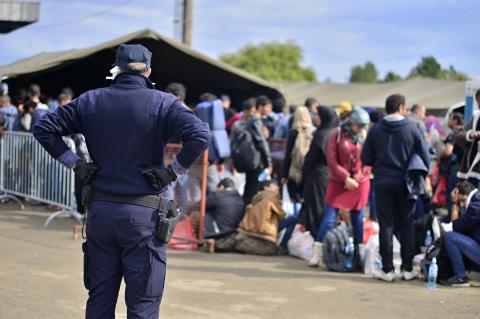Initiating Infant and Young Child Feeding in Emergencies Programming, Ukraine 2022
This is a summary of the following paper: https://www.ennonline.net/attachments/4986/IYCF-E-Ukraine-response-lessons-learned.pdf
This article summarises a recently published case study prepared by Isabelle Modigell (ENN consultant) in which 15 individuals were interviewed (69% Ukrainian nationals) and a further 22 Ukrainian breastfeeding counsellors surveyed to capture lessons learned during the initial six months of the response (February-August 2022).
The Russian Federation’s full-scale invasion of Ukraine in February 2022 resulted in the largest and fastest displacement of people in Europe since World War II, the majority of which were women and children. The nature and scale of the crisis required innovative approaches by the humanitarian community.
Some of the findings from the case study revealed that:
Infant and young child feeding in emergencies (IYCF-E) was deprioritised within the international response despite early advocacy and a plea for support from Ukrainian breastfeeding counsellors at the start of the war.
Coordination mechanisms were inadequately resourced and understaffed. However, Ukrainian breastfeeding counsellors used Facebook and Telegram to coordinate themselves and map their locations to support referrals.
IYCF-E was not part of early multisectoral rapid needs assessments, thus understandings of needs were often based on a limited number of ad hoc consultations with particularly vulnerable mothers with greater exposure to breastmilk substitute (BMS) donations.
There was a lack of consensus on needs, particularly around estimates of infants needing BMS, with controversies surrounding the data used. When asked, 62% (n=13) of national breastfeeding counsellors surveyed did not feel listened to by the international response community.
Breastfeeding counsellors who were surveyed relied on lactation professional associations and networks for technical support. Knowing that assistance was available from international colleagues raised morale.
There was poor understanding by international responders of existing local breastfeeding support cadres and services. Pre-war, there were hundreds of locally certified breastfeeding consultants and peer counsellors, regional breastfeeding support centres and a strong network of mother-to-mother support groups. The recruitment and rapid training of new counsellors by INGOs, as well as international offers for remote counselling supported by translators, was therefore deemed unnecessary by some key interviewees. Five out of nine Ukranian survey respondents felt their expertise was not recognized or leveraged by international organisations.
Remote support was impactful. In February 2022, two free-of-charge Telegram groups were established. By 2023, they had reached over 7,000 women, offering 24-hour support by volunteer breastfeeding consultants, paediatric specialists, and psychologists.
There was an ”avalanche of donated BMS”. Those consulted regarded the supply-driven donations and untargeted distributions as a major distraction, a misuse of financial resources, and harmful. Both local and international responders desired urgent guidance to address the issue, which UNICEF Headquarters subsequently provided.
Safer alternatives to BMS were reported, such as wet nursing and informal milk sharing in cases of necessity. The Kyiv Perinatal Centre’s human milk bank continued to operate and in 2022, 2010 infants received donor human milk. Due to limited evidence on operating human milk banks in emergencies, learning from Ukraine’s experiences is recommended.
Psychological assistance was found to support lactation and facilitate exclusive breastfeeding. Breastfeeding counsellors supported stressed mothers by suggesting simple somatic exercises for nervous system regulation and caregiver-infant co-regulation.
The IFE Core Group identified a need for comprehensive guidance in case of a nuclear accident which balanced risks of radiation exposure against risks of not breastfeeding. Health workers appreciated the subsequently developed guidance for its level of technical detail and clear, practical instructions by recognised experts.
The case study showed remarkable examples of national solidarity and continued breastfeeding support during a major emergency while also reflecting on some of the shortcomings of the international response.


